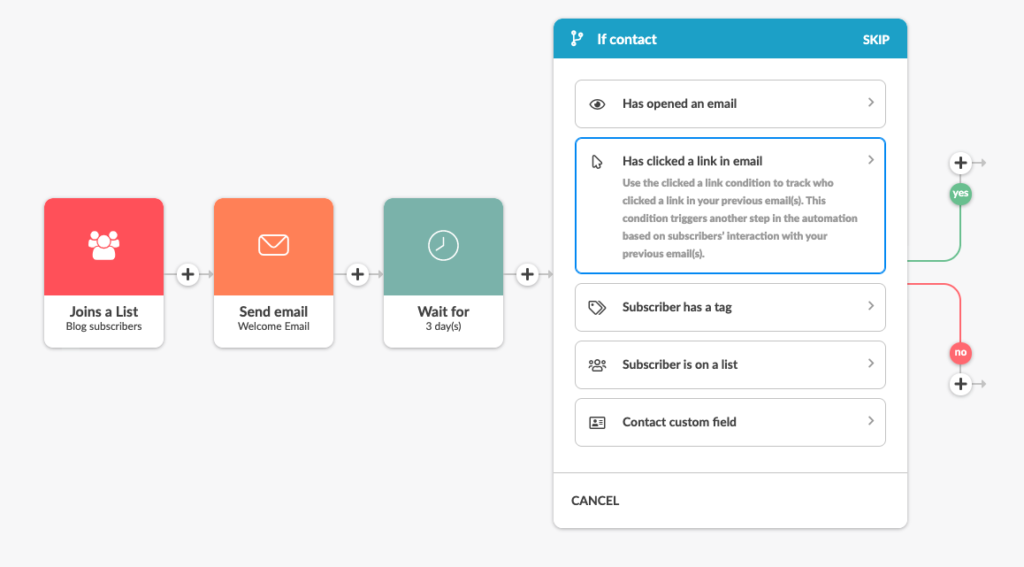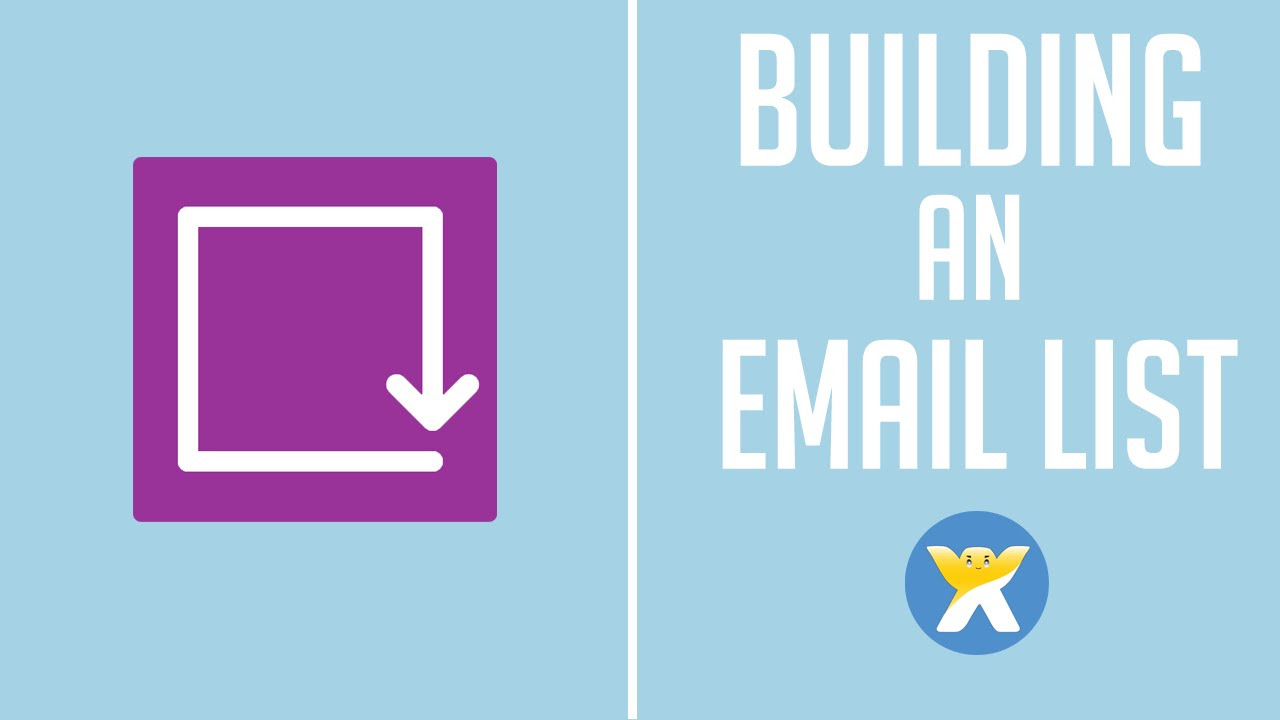20 Great Facts For Picking Email List Sellers
20 Great Facts For Picking Email List Sellers
Blog Article
What Do I Need To Think About When Purchasing What Should I Consider When Purchasing A Cpa Email List?
Take note of these aspects when purchasing a CPA list (Certified Public Accountant). You want to ensure that the list is relevant, high-quality and compliant with legal guidelines. Here's what you should be aware of: 1. Data Quality and Accuracy
Source of Data: Check the authenticity of the list. Trustworthy providers typically collect information from reliable sources, such as professional directories and trade associations. Avoid lists created using scraping and unreliable methods as they can contain outdated or inaccurate data.
Verification Process: Ensure that the email list is valid and has been updated recently. This will reduce the bounce rate and ensure you are able to reach active, valid email addresses. Ask how often the list is cleaned and updated, as CPAs often change jobs or firms.
Segmentation and Filters: A good CPA list should provide segmentation options, such as location (city, state, country) and industry expertise (e.g., taxation, auditing and financial planning) years of experience, or company size. A targeted targeting strategy using these parameters can enhance the effectiveness of your advertising campaigns.
2. Legal Regulations
Data Privacy Laws - Ensure the email list complies to the national and local regulations including the California Consumer Privacy Act. Lists must only contain legal emails.
Conformity with the CANSPAM Act The list that is used to create U.S. commercial email campaigns must comply with the CANSPAM Act. The list should provide opt-out procedures and avoid misleading subjects or content. Failure to comply could result in financial and legal issues.
Opt-In Consent: Make sure that email addresses have been obtained through opt-in consent, in which the recipients have consented to receive email from third-party marketers. This reduces the chances of spam complaints and increases engagement.
3. Provider Reputation
Reputable Provider: Examine the provider's reputation extensively. Review case studies, reviews, and testimonials to gauge the experience of past customers. Data from established providers is more accurate and reliable.
Transparency. Providers must be open about how they collected their data and when they change it. If the service provider isn't able to clearly explain their method and the reasons behind it, they should be flagged as a red-flag.
Customer Support: Dependable customer support is important if you need help in the area of list customization and troubleshooting or the rules of compliance. A good customer support service can help you save time and money during the campaign.
4. Cost and Return on Investment
Pricing Models. Different providers have different pricing models. Some charge by contact, whereas others charge an annual fee or a subscription. Review costs against ROI and weigh price against quality.
Refund Policy: Find out whether the company has an exchange or refund policy in case a significant number of emails are not correct or are invalid. Guarantees give you confidence.
Do not solely concentrate on price. Cheaper lists may look appealing however they may have low engagement or bounce rates when they are of lower quality. It is recommended to purchase lists that have accurate information and options for segmentation.
5. Data Usage and Ownership
Single-Use and Multiple-Use. Multiple-Use: Make sure you know if you're purchasing the list only for a single use or when you own the list and are able to use it for ongoing campaigns. Single-use lists are less expensive, but owning the list allows you to use it for longer-term campaigns.
Shared lists: Find out whether your email list is shared or exclusive. Shared Lists: Decide if the email list belongs solely to you or if it's shared with other buyers. The shared list can create a sense of fatigue among the recipients because they are already bombarded with marketing emails.
6. Data Integration and Format
CRM Compatibility: Make sure the list is in a format that works with the CRM software or marketing email like CSV or Excel. This will allow for an easy import and administration of the data.
Simple of Use: Examine the ease with which you can sort and manage your data once it's been integrated into your system. Personalization and targeting is more efficient with a well-organized lists.
7. Ethical considerations
Relevance of Content - CPAs are on an extremely busy schedule, which is why it's important to send information that is relevant and offers value. In the event that you send out spammy or irrelevant messages, it could damage your reputation and increase complaints.
Avoid sending too many emails Limit the number of times you email your contacts. Over-communication could lead to unsubscribes, spam complaints or even unsubscribes. This could negatively impact the reputation of your sender.
The final sentence of the article is:
Make sure you consider the quality of data legal compliance, as well as the reputation of the service provider when you purchase CPA lists. Consider legal compliance, data quality, and reputation of the provider when purchasing a CPA list to ensure your investment is worth it. Targeting, segmentation and ethical behavior can increase engagement and boost ROI while maintaining your brand's image. See the pro cpa email list for website guide.
What Factors Should I Think About Before Buying A Physical Therapists Email Lists?
When you purchase a physical therapist's email list, you must consider a few important aspects to be considered to ensure the list is accurate, legally compliant, and effective for your marketing or outreach efforts. Take into consideration the following factors: 1. Data Quality & Accuracy
Source of Information: Ensure that the company who hosts the email list collects data only from trusted sources such as professional associations (e.g. the American Physical Therapy Association) health directories, health directories, or licensing authorities. This means that the addresses are accurate and reliable.
Verification Process. Confirm that there is a verification process in place by the list service provider to frequently review and update the data. A trusted supplier should periodically purge the database of invalid or unresponsive emails, thereby increasing the likelihood of delivery.
Segmentation Options: A good physical therapists ' email list must provide segmentation options. This could be based on locations (city/state/country), years of experience, specialties of specialization (e.g. sports therapy, orthopedics or pediatrics) or type of practice (private practice, rehab center hospital). Segmentation allows you to target the right audience by using specific messages.
2. Legal Regulations
Data Privacy Laws â Ensure that your email lists comply completely with national and local regulations, including the California Consumer Privacy Act, which is applicable to the U.S.A. and also as the General Data Protection Regulation, in Europe. The information must be processed, collected and stored in accordance with the law.
CAN SPAM Act Compliance: In America, email marketing campaigns have to comply with the CAN SPAM Act. This demands precise subject lines and opt-out options as well as physical addresses for mailing. Making sure that your list is compliant with this law decreases the possibility of fines as well as legal issues.
Opt-In Consent: Ensure that your email list consists of contacts who have chosen to receive marketing emails. This means the physical therapists consented to receive marketing communications from third-party companies. It also lowers the likelihood of receiving spam complaints.
3. Provider Reputation
Choose a trusted service: Choose an email list provider with a solid reputation for providing reliable and top-quality email lists. To confirm the credibility of the company and success, check for reviews, testimonials, and case studies.
Transparency. The service provider must clearly explain how they collect and then update their information. If the service provider is not able to describe their method of collecting data in a clear manner, it could indicate that their data is outdated or collected it through questionable means.
Customer Support - Ensure that the service provider has excellent customer support, in case you run into issues with your list or require assistance with compliance issues or integration of your marketing tools. Being responsive to customer support will save you time and keep from future issues.
4. Return on investment (ROI) and cost
Understanding the pricing model of the provider is important. Certain companies charge based on the number contacts, while others charge a flat fee. Examine costs in relation to the anticipated ROI to determine the most cost-effective method to implement your marketing strategy.
Find out about policy on refunds or replacements if many of the emails are inactive or bounce. This could help protect your investment if the quality of the list does not meet your requirements.
Choose a list that is an appropriate balance of cost and quality. If you choose a list that is cheaper but contains more than one inactive or incorrect email address. This can hurt your campaign. Select the most effective option however, you must prioritize quality and segmentation over cost.
5. Data Ownership and Use
Single-Use and Multi-Use: Understand the difference between lists designed for a single purpose as well as those that you can reuse for multiple campaigns. Although single-use lists are less expensive, they limit your options for future outreach. A multi-use list is better for long-term campaigns.
Exclusive and Exclusive. Shared Lists. Find out if the list you've got is solely yours or has been it was sold to multiple buyers. The shared list could be used for too long and resulted in fatigue. This can result in lower engagement rates.
6. Data Integration and Format
CRM Compatibility: Ensure that the email list is provided in a format that is compatible with your customer relationship management (CRM) system or email marketing platform, such as CSV or Excel. The data can be easily integrated and managed.
A well-organized, easily managed list is easier to filter. Making sure that you send out effective and personalized messages will be much easier if you can quickly identify and target specific therapists with pertinent criteria.
7. Ethical aspects
Relevance in Content: Because physical therapists work as specialized professionals your outreach efforts should be relevant and valuable. Avoid messages that are generic or irrelevant since it could harm your reputation as a brand and reduce engagement rates.
Beware of Spam practices: Don't over-email people. If you send too many emails, it can result in unsubscribes, spam complaints and a lower sender reputation.
The final sentence of the article is:
When buying a physical therapy email list be sure to consider these aspects: data quality and legal compliance. Also, look at the reputation of your provider. Pick a list with segmentation that is frequently updated and complies with privacy laws. A top-quality, well-studied list will lead to more targeted marketing, greater engagement, and a greater ROI on your marketing investment. Check out the best physical therapists email list for site recommendations.